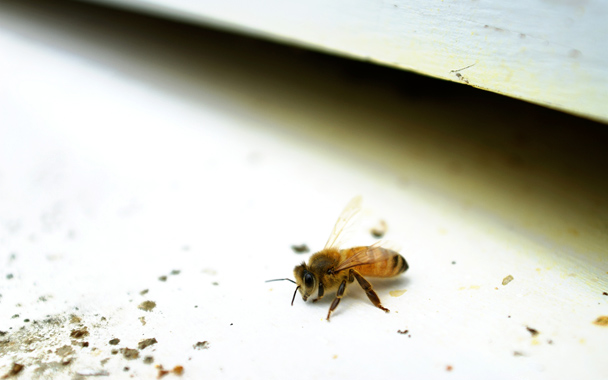Bitter Truths
The honey business is not all sweetness and light. In fact, when it comes to buying honey, consumers are being intentionally kept in the dark, according to a scathing report by Andrew Schneider last month in The Seattle Post-Intelligencer. Among his findings:
· The USDA “Certified Organic” label for honey is, for the most part, meaningless, although you’ll have no trouble finding bottles emblazoned with it, and priced accordingly. “Like other foods from free-roaming wild creatures, it is difficult—and in some places impossible—to assure that bees have not come in contact with prohibited substances, like pesticides,” Chuck Benbrook, chief scientist for the Organic Center, told Schneider. Bees, in fact, range out from their hives for more than two miles in search for pollen, bringing them in contact with commercial crops and treated lawns.
· Terms like “100% Pure,” “U. S. Choice,” “U. S. Grade 1,” and “Natural” are similarly meaningless, sometimes adorning the labels of brands that have been cut with sugar and other cheap sweeteners.
· The word “honey” doesn’t even guarantee the substance’s presence in cereals and crackers, or if it’s there, it’s used in lesser quantities than sugar and high-fructose corn syrup.
Legitimate beekeepers have long been frustrated by the erosion of the term “honey,” according to the report. But until stricter regulations are put in place and enforced, consumers are left on their own—unless they have access to a local farmers market where they can deal directly with the person who raised the bees and bottled the honey.
From the Mouths of Babes
Someone really has to explain what, exactly, the Portland, Oregon, public school system was trying to prove when it asked Oregon State University to conduct a hamburger taste test on students in two elementary schools.
As part of what was billed as an effort to use more locally sourced food, kids were fed two burgers, one made from local grass-fed beef, the other made from generic grain-fed meat provided through the USDA’s entitlement program. The purpose of the test was to see if the children would eat the grass-fed patties. Importantly, the USDA meat came pre-cooked and was laced with hydrolyzed corn protein, dextrose, salt, flavorings, sodium phosphates, and caramel color. The grass-fed burgers got by with a sprinkle of salt.
The results (and this surprised me) was that the children were evenly split: of the 91 in the survey, 45 preferred grass-fed and 46 grain-fed. Given the closeness of the tally, you’d think officials who were purportedly looking for ways to boost local ingredients in school menus would opt for grass-fed burgers. But you’d be wrong. They opted for the grain-fed meat, citing cost savings.
But the survey did prove one point: Nearly half the kids in Portland know what’s good for them, even if school nutritionists don’t.
Trust Busting
Having spent a fair bit of time tramping around California vegetable fields, I can attest that it is virtually impossible to tell conventional plantings from organic ones. Despite all the regulations and oversight, when push comes to shove, organics is still a business based on trust.
For nearly seven years, that trust was violated by a company called California Liquid Fertilizer, according to The Sacramento Bee. The firm, which held a third of the organic market in that state, sold “organic” soil supplements made with fish and chicken feathers—oh, and, yes, a little inorganic synthetic ammonium sulfate for that special oomph (at one twentieth the cost to the manufacturer).
That in itself is bad enough. But what was downright inexcusable was the official reaction. The Bee reports that a whistleblower alerted the California Department of Food and Agriculture to the situation in 2004, but didn’t order the company to remove the product until early 2007 even though they knew it was still being used by some of the state’s largest organic farms—and then waited another 18 months before making their findings public. And they imposed no fines or other punishment on California Liquid Fertilizer.
So much for trust.




 Pinterest
Pinterest


